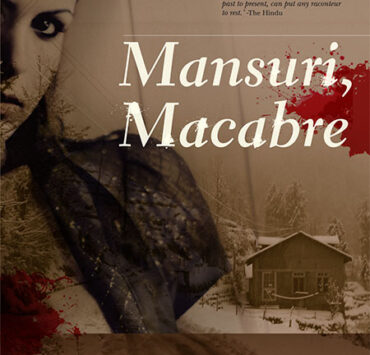I hate you, Parismita Singh.
Being a bored final-year student at BITS, Pilani, is not much fun, Parismita. We do not have many pleasures to help us get by in the desert. The legal age for drinking is 25 in this godforsaken state and every time we light a cigarette, we look behind our backs twenty times, lest someone catch us with one. My friends have all graduated and live in cities with hot water and Pizza Hut. My boyfriend left me after finding out that I read Saris and the City, my Internet connection died two weeks ago, and I have a cold.

The Hotel at the End of the World book cover.
The one thing that I eagerly looked forward to was venting my frustrations in this review of your book. I looked forward to deriding your taste in fonts (Inked, again?), sarcastically sympathising with your colour-blindness (that jaundice-yellow cover? Really?), smothering you with my Bong-intellectual hangover by pointing out your heavily-borrowed references from Bengali folklore. I looked forward to panning your book with such relish and ending it with a warning never to pick up graphic novels that are not written by a White Male.
Did you have to spoil it for me?
Did you have to make up for your juvenile artwork with panels here and there that are brilliance personified? Did you have to weave the seemingly simplistic story with such cunning skill into a complex and multi-layered tale? Did you have to introduce flat, stock characters in the beginning that gave me hope, and then later show them in a light that totally transforms them into mysterious creatures that are just out of reach of human understanding? Did you have to make me laugh and chill my bones, even as I squirmed at the fact that this book could do that to me? Did you, in short, have to make me like it?
Why did you have to turn around a predictable plot like a bunch of people stuck together in a hotel on a rainy day, telling each other stories to pass the time? They were all there, the stock people we see hashed and rehashed to death—the hotel owners, the old Prophet, the travellers from afar, the quiet young observant girl. Of course, we know that they each have stories to tell. The book is divided into five parts titled ‘Pema’s Story’ , ‘The Soldier’s Story’ and the like, after all. When the two travellers begin their story and talk of their quest for “the floating island” that is full of magical treasures, a happy groan escaped me. I rubbed my hands with glee at the pleasant prospect of panning it as yet another Treasure Island-wannabe for schoolchildren.
How was I to know that the floating island would stand for so much more and become a part of a recurring theme in the novel? How was I to know that the supernatural would become the most natural aspect of the book, the character of the book, if you will? It is never out of place, it is never obvious, it is just there and it is accepted as part of everyday life by the characters with spine-chilling nonchalance; much like the dead soldier in the hotel for whom a glass of wine is always kept aside. And he drinks it. The supernatural is treated as just another nationality, almost. And it’s so, so goddamned right, it’s so at home in the novel. Aaargh, help me trash this book! Help me call it a schoolkid’s bedtime ghost story!
In the end, the book, just like its characters, just like the hotel at the end of the world, just like the floating island, is enchantingly and maddeningly out of reach. It reveals itself to you in layers, captivates your imagination, piques your interest, and then, abruptly, ends with a curtain that gives no explanation, no illumination, no closure. Almost.
The story is over, but somehow, not. On rainy days, you might be possessed by a crazy desire to go looking for this hotel. Now tell me, after you treat me to something like this, how can I write a sarcastic, scathing review? You let me down, Parismita. I hate you.
[Penguin Books India; ISBN 978-0-143-10294-6]








lovely